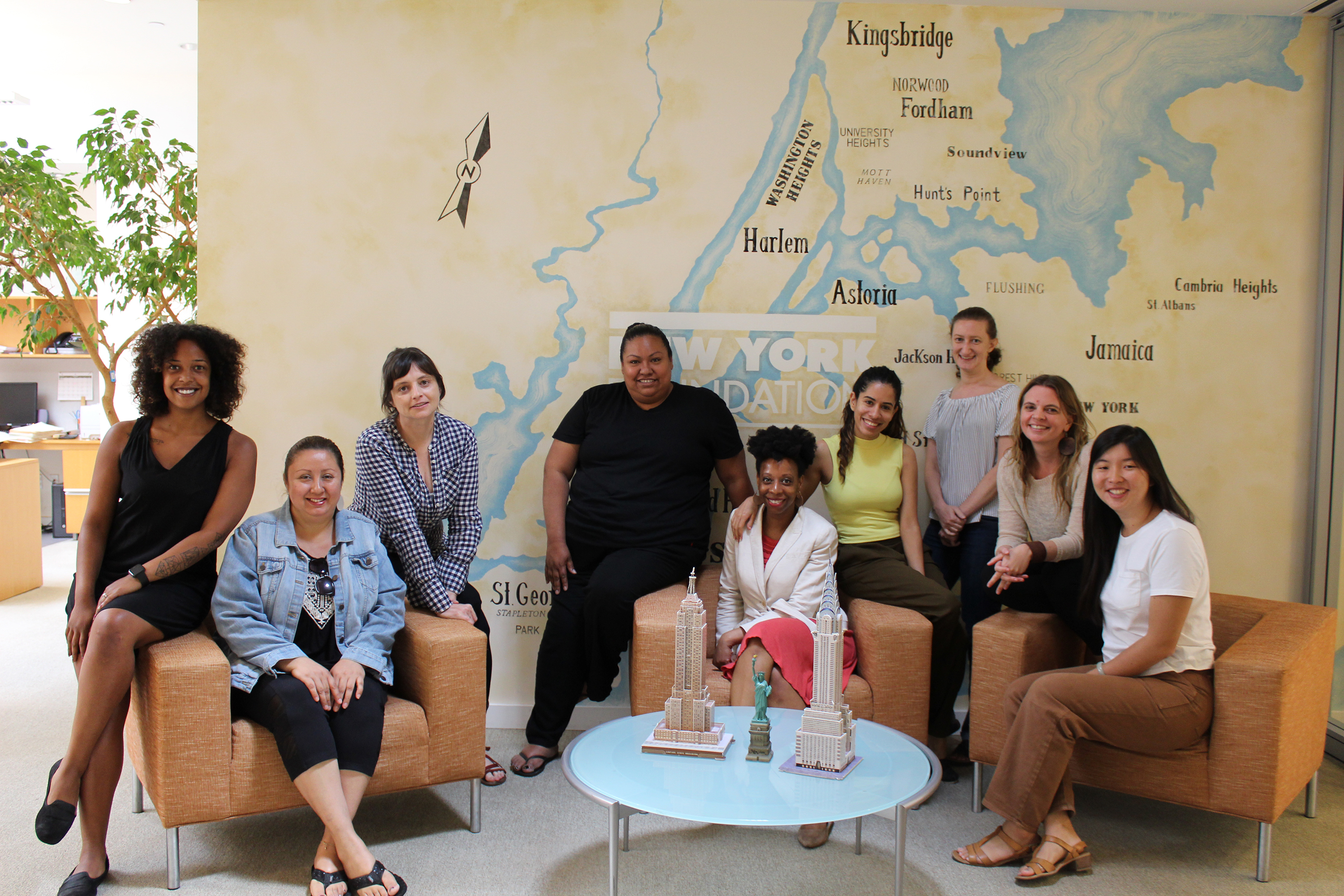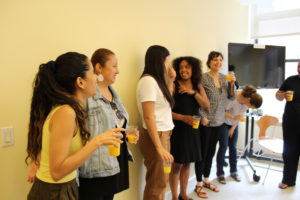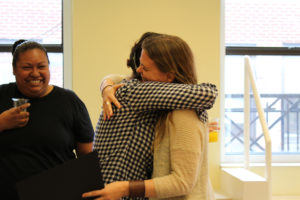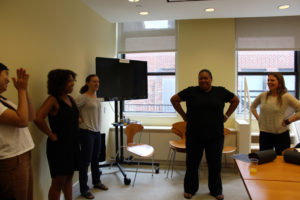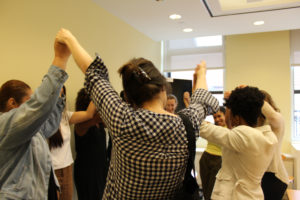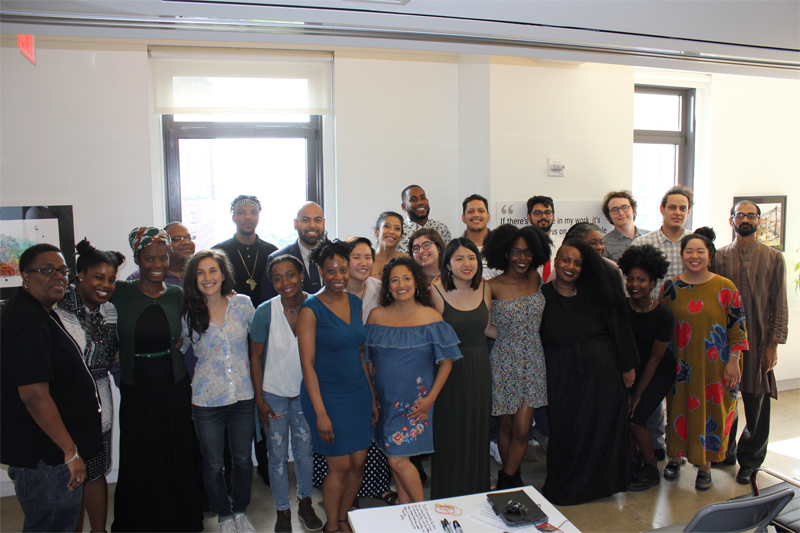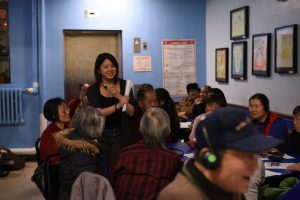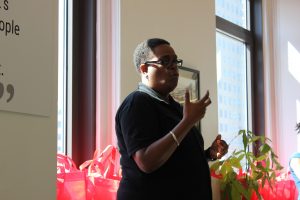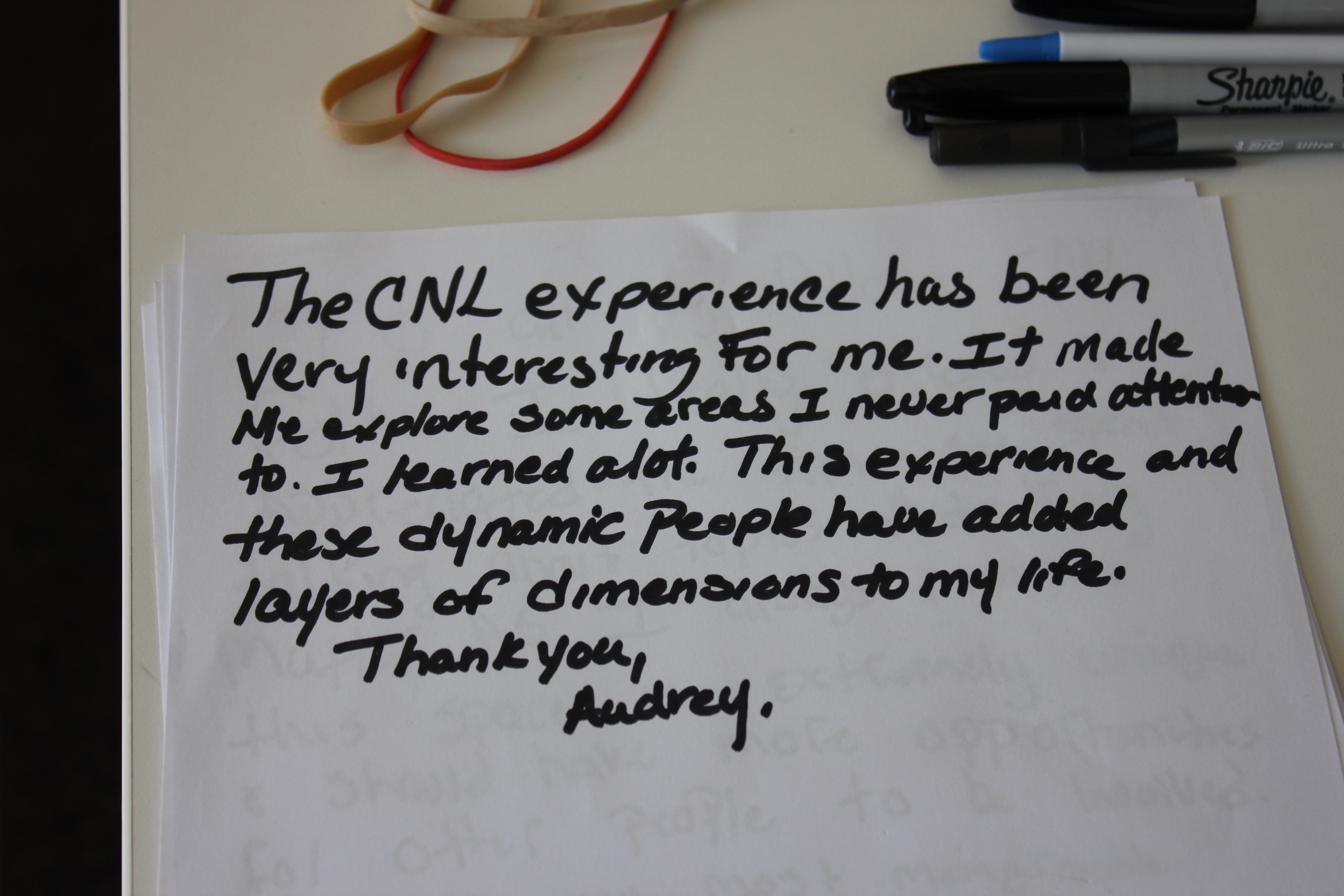ANHD Celebrates Our Next Cohort of Community Leaders from the CNL Organizing Academy
Last week, we celebrated the completion of the 2017-2018 year for the Advanced Course of the Center for Neighborhood Leadership (CNL)’s NYC Organizing Academy. CNL trains and supports community leaders and increases the capacity of grassroots organizations to win concrete changes for communities. A part of that program, the NYC Organizing Academy is designed for individuals currently doing community organizing, who are interested in expanding their skill sets, experiences, and networks.
Community organizing is difficult, and at times alienating work. The Advanced Course is an opportunity for experienced organizers to not just further develop their skills, but also build community. The Advanced Course creates a space for these organizers to read, reflect, and engage in deep discussion about their work, the context and significance of their work, and their own organizing practice. These eight organizers – who this year all identify as women – dug deep into theory and developed new practices for how to deepen their analysis and practice of political education, build a powerful base, develop leaders, win campaigns and create institutions that support organizing.
Congratulations to Emily Goldstein, Samantha Kattan, Lorena Lopez, Aura Mejia, Marcela Mitaynes, Frangelin Pozo, Aga Trogniak, and Melanie Wang!
We want to especially thank our training instructor Susanna Blankley who is also the Coalition Coordinator for the Right to Counsel NYC Coalition, which is made up of more than 45 tenant advocate groups, tenant organizing groups, faith based groups, academics, and legal services providers throughout the New York City. Susanna is also an alumnus of the CNL program herself.
We also want to thank New York Foundation for generously offering their space for our celebration and to Jennifer Ching, Executive Director of the North Star Fund for coming and speaking to our graduates about how to have faith in themselves and the work they are doing and the kind of impact they can have as women and women of color in the community organizing movement.
Here is what our recent graduates had to say about the CNL Advanced Course:
“YAS, YAS, three times YAS! A super informative, challenging, learning space to help further yourself in your own personal goals as well as organizing and organizational goals,” said Frangelin Pozo, Faith in NY
“It’s a great opportunity to meet and learn from other organizers. It creates space to reflect on how we are organizing, motivating, leading, and following,” said Aga Trojniak, Flatbush Tenants Coalition
“If you’re really looking to improve your skills, better support your communities and remember why you chose this line of work, you’ve got to do it!” said Lorena Lopez, Catholic Migration Services
“It was a great way to push myself to think deliberately about my organizing practices, improve my work, and capture ideas for future use,” said Emily Goldstein, The Association for Neighborhood & Housing Development (ANHD)
“I highly recommend it for new/experienced organizers,” said Marcela Mitaynes, Neighbors Helping Neighbors
“Get ready for a fun and great learning experience!” said Aura Mejia, Neighbors Helping Neighbors
“This class provided me with mental space and community support to really think through the values, skills, and knowledge I want to exercise as an organizer. I am incredibly grateful to Susanna, Ericka, and all my classmates for what we built together!” said Melanie Wang, CAAAV
To learn more about the class or the Organizing Academy, please contact Ericka Stallings.
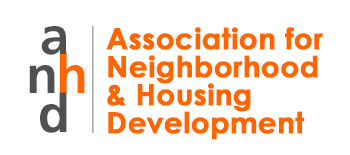 ANHD 2016 Building the Community Development Movement
ANHD 2016 Building the Community Development Movement

